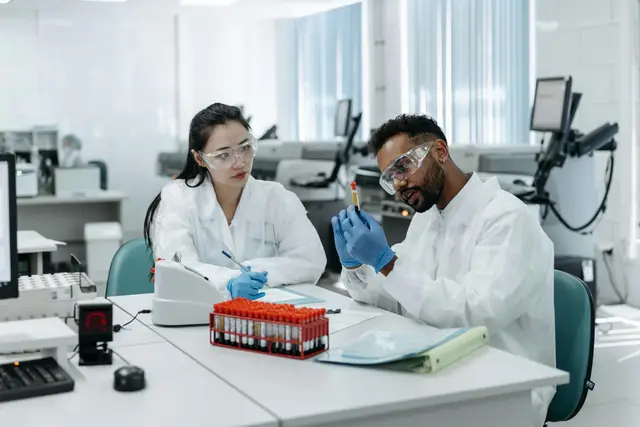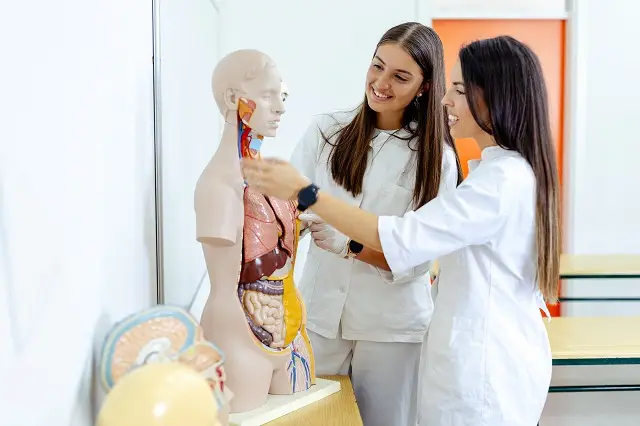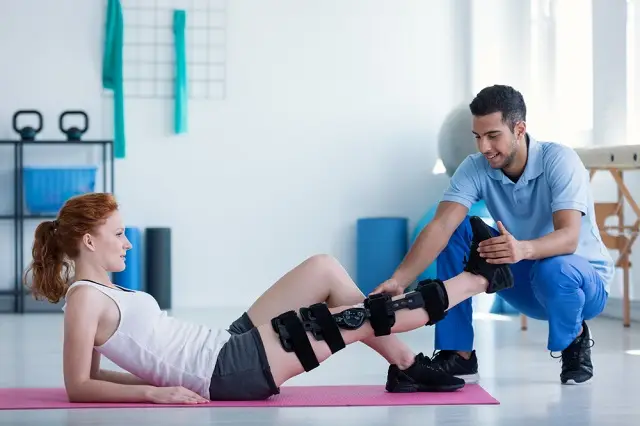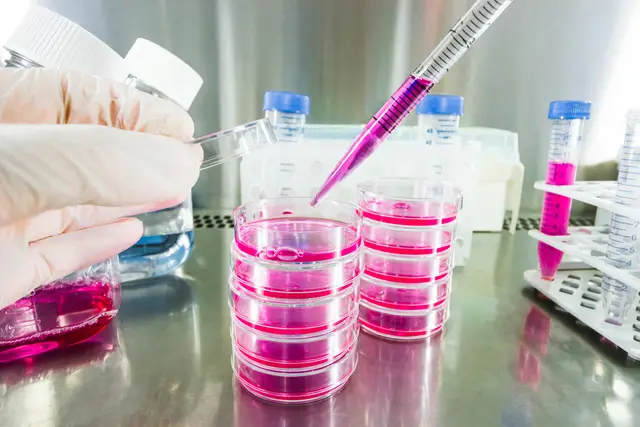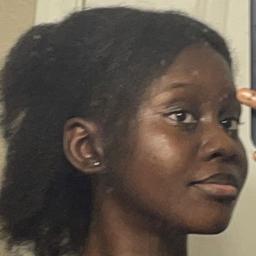Medicine is an exciting, diverse and constantly evolving field and, thus, the types of research in this area follows suit. From clinical research into medicinal efficacy, to clinical trials using human subjects, to datasets and qualitative surveys, the world of medicine can be explored through many different approaches.
Similarly, the types of careers available within the medical field are also quite endless and varied: hands-on surgeons in the OR, business-minded healthcare administrators, public health researchers, professors of medicine, community health workers and epidemiologists–to name a few.
The opportunities for medical research and career paths are truly unlimited. The common thread throughout most medical professions, however, is that the individuals who most thrive in them tend to be: hard-working, empathetic, patient, curious, flexible, detail-oriented and great at communicating.
Take time to learn about different areas of medicine to see which topics and aspects you’re gravitating toward right now. Science and math courses at your high school will provide the best foundational knowledge for college- and grad-level medical studies. There is also a vast array of books on specific medical topics, case studies and narrative perspectives.
Taking advantage of resources available to you now and participating in extracurricular activities can expand your knowledge and help you discover medical niches and research areas that spark excitement for you.
1. Take a Class in High School
Science and math courses tend to be the most applicable when preparing for a medical path. The availability of classes varies greatly from school to school, but most high schools offer many of the courses listed below. You can also look for them at your local community college or an accredited online institution.
Natural Sciences:
Anatomy
Biology
Chemistry
Organic Chemistry
Physiology
Social Sciences:
Anthropology
Communications
Public Health
Psychology
Sociology
Mathematics:
Algebra
Physics
Calculus
Statistics
It’s important to note that in life and work, it’s an advantage to be well-rounded and it can open up more opportunities for you. Be thoughtful about the humanities courses you select, too. They might feel extraneous to your medical aspirations, but they could actually end up being extremely relevant.
Speaking multiple languages would be a huge benefit, for example, if you want to serve immigrant populations or individuals in international crisis areas (e.g., Doctors Without Borders). A good understanding of writing structure can help you communicate your theories and discoveries more effectively in a medical journal. If you love the arts, it might inspire a medical research project.
2. Read a Book
There are many acclaimed books on various facets of the medical industry, from instructional books to historical narratives, to social and ethical questions and firsthand accounts. Below are some of the classics.
History, Commentary and Accounts from the Field
“An American Sickness: How Healthcare Became Big Business and How You Can Take It Back” by Elisabeth Rosenthal - An exploration of the doctor-patient relationship and exploitation within the US healthcare system.
“Better: A Surgeon’s Notes on Performance” by Atul Gawande - A national bestseller investigating human performance in medicine in battlefield surgical tents, delivery rooms, malpractice courtrooms and more.
“The Emperor of All Maladies: A Biography of Cancer” by Siddartha Mukherjee - Cancer is explored through the lenses of history, research and cellular biology in this Pulitzer Prize winning memoir.
"The Gene: An Intimate History" by Siddhartha Mukherjee - This book looks at the history of genetics and the impact on medicine and society.
“The Man Who Mistook His Wife for a Hat” by Oliver Sacks - An account of real clinical cases of patients with fascinating and bizarre neurological disorders.
"When Breath Becomes Air" by Paul Kalanithi - A young neurosurgeon is diagnosed with terminal lung cancer and reflects on what it means to live a meaningful life in his memoir.
Texts and Instructional Books
“The Language of Medicine” by Davi-Ellen Chabner - An educational text with important medical terminology explained through easy-to-follow descriptions, examples and exercises.
“The Medicine Book: Big Ideas Simply Explained” by DK - An accessible medical overview on the breakthroughs and discoveries that have shaped our understanding of medicine today, with striking graphics to simplify complex topics.
“Netter Atlas of Human Anatomy” by Frank H. Netter - A mainstay medical school atlas with detailed illustrations of the human body from a clinical perspective.
As in all sciences, there are constantly new breakthroughs in medicine. Keep up with new developments through reputable websites, podcasts, medical journals, and organizations like the American Medical Association (AMA).
3. Extracurricular Study
Remember that quality is often more important than quantity when it comes to extracurricular activities. Choose activities that genuinely interest you.
Volunteer at a health facility: Get some exposure to health and medicine in the real world by seeking out volunteer opportunities at local hospitals or community organizations.
Intern: Seek internships or shadowing opportunities with practicing doctors, nurses and other healthcare professionals. This firsthand experience can give you insight into the day-to-day work of professionals in the medical field.
Join or start a medical-related club: HOSA-Future Health Professionals is a well-known organization endorsed by the Department of Education. If this group doesn’t already exist at your high school, you can start a chapter! HOSA cultivates leadership skills and builds knowledge among students interested in pursuing health careers.
Become an EMT: If you’re over 18, you can train to become an Emergency Medical Technician (EMT) and get real, hands-on experience.
Find a mentor: Find a mentor who is a practicing medical professional, pre-med professor, or medical school graduate student (with knowledge in medicine, neuroscience, public health, and/or healthcare). They can answer your questions, provide guidance and share insights into the profession.
Conduct independent research projects: Undertake independent research projects in medicine. You can investigate topics of interest and present your findings at school or local science fairs.
Present: Develop your public speaking skills by giving presentations or talks on medical-related topics. Consider participating in events like TEDx Youth or school assemblies.
Write: If getting up and talking in front of people is not your thing, you can contribute articles or essays to your school newspaper or magazine on medical-related subjects. This can help you develop your writing skills and share your passion for the field.
Create a medical blog or podcast: Start a blog or podcast where you discuss medical topics, share book reviews, or interview professionals in the field. This can showcase your interest and communication skills.
Start a movement: Start or join an initiative or event to raise awareness and/or money concerning a regional or global health issue.
If you could use some help developing your own medical research project, our Pathfinders program gives you access to mentors in healthcare who can listen to your ideas and provide valuable feedback.
There are many research options for high school students to drill down into a facet of the medical field that interests you, including summer pre-college programs, local community college offerings, internships, virtual programs and independent research with a professor or mentor. If you want to conduct your own experiments, we highly advise that you have a qualified adult advisor you can consult.
Find research programs close to home
We’ll go into summer medical programs in more depth in the next section, but if you want to find all types of established medical research opportunities close to home, our High School Student Research Opportunities Database is an excellent resource. Click on your state, then search based on your location, institution, event type (in-person or virtual) and tuition (paid or free).
Work with a professor
If you have a clear idea of your passions, you can reach out to professors in your field to see if they are open to collaborating with you. Refer to our Guide to Cold-Emailing Professors (written by Polygence literature research mentor Daniel Hazard, a Ph.D. candidate at Princeton University).
Engage in your own research project
Students with initiative and focus can opt to tackle research independently. Carly Taylor, a Stanford University senior who has completed several independent research projects, shares how to write a self-guided research paper. By reading it, you’ll get a better understanding of what to expect when taking on this type of project.
Enter a competition
Competitions can be fun when you’re really interested in a subject and the requirements and deadlines that come with competitions can provide a helpful structure for you to stay on track. Another benefit to attending a competition is that you will meet other students, teachers, and experts who share your passion for the medical field. There are many fantastic science and medicine-related competitions geared toward high school students, including:
If you could use some help developing a plan of action, our Pathfinders program gives you access to medical mentors who can listen to your ideas and provide valuable feedback.
Here are some top picks for summer medical research programs. We chose them based on a combination of their affordability, name recognition, social opportunities and academic rigor.
Hosting institution: Rady Children’s Hospital
Cost: $3,000 (partially tax-deductible)
Format: In person (San Diego, CA)
Application deadline: TBD - 2024 deadline not yet released
These two-week sessions provide interactive learning opportunities and are designed for students interested in pursuing a career in healthcare, particularly as a nurse, physician assistant or mental health practitioner. Highly motivated and enthusiastic students who will be between 15-19 years old in June 2024 and have completed 9th grade (up until the summer after graduating 12th grade) are eligible to apply.
Hosting institution: CDC - Centers for Disease Control and Prevention
Cost: Free
Format: In person (Atlanta, GA)
Application deadline: TBD - 2024 deadline not yet released
Topics vary year to year in these one-week sessions and may include public health interventions, global health, infectious disease, chronic disease, injury prevention and data analysis. The program is fast paced and academically demanding and participants are expected to fully immerse themselves, work together, and become a diverse team of “disease detectives.” Admission is open to high-school students during the summer before their junior or senior years.
Hosting institution: Georgetown University
Cost: $2,750-$3,549
Format: In person (Washington, DC)
Application deadline: TBD - 2024 deadline not yet released
In this one-week program in June or July, students explore topics ranging from human anatomy, physiology, and radiology to surgery, cancer, biomedical ethics, and procurement of human tissues. Students will participate in hands-on labs, including suturing, orthopedic casting, small mammal dissection and use of a patient simulator. Participants will have the opportunity to interact directly with medical students, faculty and physicians. The program is open to current or rising high school students in good academic standing.
Hosting institution: Alameda Health System, Samuel Merritt University, and private clinicians
Cost: $1,400
Format: In person (Oakland, CA)
Application deadline: TBD - 2024 deadline not yet released
MISA offers this five-day program in the spring and summer. MISA works to expose pre-med and pre-health high school students to hands-on clinical experience in a variety of healthcare settings that will provide them with a competitive edge as they begin their own career in health. MISA encourages high school students (15 years or older) from across the country to apply.
For all of our summer medical research picks, check out this post on the subject.
If you’re searching for a virtual psychology research opportunity, consider doing a project through Polygence with one of our mentors in medicine.
Hosting institution: Cincinnati Children’s Hospital Medical Center
Cost: Paid internship: $13/hour; 20 hours/week
Format: In person (Cincinnati, OH)
Application deadline: February 1, 2024
Graduating high school seniors get the opportunity to work with a mentor in one of multiple pediatric specialties in this eight-week, part-time internship program. The program is very competitive, offering an exciting experience for highly motivated students interested in pursuing higher education (MD, PhD, or MD / PhD) to learn more about careers in Biomedical Sciences.
Hosting institution: University of Colorado-Boulder
Cost: $3,500 stipend offered
Format: In person (Boulder, CO)
Application deadline: TBD - 2024 info not yet released
This paid internship introduces high school students between their junior and senior years of high school to research opportunities related to child health. After a summer of hands-on experience, students will have the opportunity to participate in a lecture research series and present their research at the completion of the internship. The internship includes opportunities for students to participate in a lecture research series as well as present their research at the completion of the internship.
Hosting institution: The National Institutes of Health (NIH)
Cost: Free; may provide stipend
Format: In person (Bethesda, MD)
Application deadline: February 16, 2024 @ Noon ET
Students interested in exploring careers in research and healthcare get to work in a research group directed by a Principal Investigator (PI). Students passionate about biology, engineering, epidemiology, psychology, mathematics, chemistry, pharmaceutical sciences, nursing, physics, computer science, bioinformatics or other health-related fields are encouraged to apply. This eight-week internship program is open to high school juniors and seniors (at least 17 years old).
Hosting institution: Stanford University
Cost: $500-$1,500 stipend offered
Format: In person (Stanford, CA)
Application deadline: February 24, 2024
SIMR is an eight-week, paid summer internship program open to high school juniors and seniors from diverse backgrounds. The program consists of hands-on research under the direct guidance of a one-on-one mentor. Students applying to the program can choose from eight areas of research: Immunology; Neurobiology; Cancer Biology; Bioengineering; Stem Cell and Regenerative Medicine; Cardiovascular Biology; Bioinformatics; and Genetics and Genomics.
There are many different forms of research and ways to pursue your project. Experiments on animals or volunteer human subjects help medical researchers determine causation through comparing the effects on treatment groups and control groups. Survey-based research involves analyzing participants’ responses to questions, such as through express interviews, written responses or numerical information. A literature review is a written summary of key works that have already been conducted about a medical topic over several years. Other projects involve analyzing large amounts of data in spreadsheets using statistical analysis.
Polygence Scholars Are Also Passionate About
You can brainstorm your own project ideas and pull from these idea generation techniques to come up with your own idea based on a medical or health concept that intrigues you. If you have an area in mind that you would like to explore, consider which form(s) of research might be best to elicit the type of information you are seeking.
If you could use some inspiration, below are 10 medical research project ideas from our mentors to help kickstart the process.
The Use of Virtual and Augmented Reality in Medicine
Level: Beginner
Idea by: Medical research mentor Mina
Virtual realities are becoming the norm around households and even classrooms these days! Did you know that virtual and augmented realities are also starting to be incorporated within the world of medicine? Take a deeper dive into this topic and write a research paper on your findings!
High School Health Independence
Level: Beginner
Idea by: Medical research mentor Margaret
Sometimes, it’s hard for teens to pinpoint a medical problem that they might be facing. How can we better educate high schoolers on the ins and outs of self care and living a healthy life? Brainstorm ways to introduce positive lifestyle mechanisms to this specific age group.
How Does Aristotle Inform Decision-Making at the End of Life in the U.S. Healthcare System?
Level: Beginner
Idea by: Medical research mentor Avery
Sometimes, medical decisions can interfere with what you believe is ethically correct. To help with this, clinicians should have some sort of guide to help them through decision making processes. For this project, you will grasp a better understanding of Aristotle’s principles, ethics, and more to assist with medical decision making.
What can Songbirds Teach Us about Premature Infants?
Level: Intermediate
Idea by: Medical research mentor Naomi
Due to the advancement of medicine, more premature babies are given a chance at life than ever before. However, some of these babies unfortunately grow to develop some sort of mental impairment which points back to their time spent in the NICU. Is the sensory overload found within the rooms of the NICU altering brain development?
Under the Dermatoscope: A Fact Check of Common Skin Care and Sun Protection Advice
Level: Intermediate
Idea by: Medical research mentor Austin
If you find yourself buying lotions and serums to protect your skin from the sun, this could be the project for you! Do your research on all things dermatology! What really causes skin damage and how do you know you’re using the correct ointments? Create a blog or podcast on skin health.
Development of New Cancer Treatment with Targeted Medicine
Level: Advanced
Idea by: Medical research mentor Clayton
Explore the world of medicine by helping treat a cancer type of your choice! For this project you will invent a drug by learning more about cancerous cellular markers. You will focus on targeting those specific markers with the drug that you develop. Write a research paper or create a poster presentation to explain your creation.
How Will Personalized Medicine Affect the Costs of Medical Care?
Level: Advanced
Idea by: Medical research mentor Alejandro
You went to the doctor and used your insurance, yet you still received a large bill in the mail. Then you have to go back to the doctor because the treatment given to you didn't work. It’s time to incorporate personalized medicine into our healthcare system. Do your research to gain an understanding on why this has yet to happen and what we should do to get there.
Tranexamic Acid as a Treatment for Drug-Induced Angioedema
Level: Advanced
Idea by: Medical research mentor Gaurav
Unfortunately, we probably all know someone with high blood pressure as it’s one of the most common diagnoses in the U.S. Even though there are plenty of medications that help control the spike in blood pressure, many of them have awful side effects. One of the most common side effects, angioedema, can be very dangerous if left untreated. Do your research to develop a treatment plan for these patients.
Need more inspiration from our fantastic mentors? Check out additional Passion Project Ideas here! (And if you have a particular interest in cancer research, see 13 Cancer Research and Passion Project Ideas for High School Students.)
If you want to bounce your ideas off someone else, the Pathfinders program gives you the chance to talk with mentors who specialize in your field of interest. You can discuss your project ideas with them, and they can help you grow your idea, discover new research techniques, and point the way to great resources and alternative options.
For a sense of how varied the subjects and methods for medical projects can be, take a look at topics covered by some of our Polygence Scholars.
The effect of dance on the memory and proprioceptive ability of the elderly
Ella studied the effect of two months of dance classes on elderly participants. She first recorded participants’ baseline memory, balance and proprioceptive abilities (sense of body movement) prior to beginning the class, and then again two months later, upon completion of the class. Read her research paper here.
A theoretical gene therapy for hereditary nonpolyposis colorectal cancer using CRISPR-Cas9 nickase
Shravan posed an alternative treatment method for hereditary non-polyposis colorectal cancer (HNPCC). He suggested using CRISPR-Cas9n-based gene therapy to prevent tumor formation in patients, avoid morbid surgery and significantly improve quality of life. He has submitted his research paper for publication in the Journal of Emerging Investigators. Read it here.
How could AI assist in the prediction and search for risk factors associated with anorexia nervosa?
Krishnaveni explored using artificial intelligence to help detect and diagnose eating disorders earlier. She created an integrated AI solution to finding eating disorder prevalence based on the responses to a National Longitudinal Survey of Adolescent to Adult Health questionnaire. Her paper was published in the International Youth Neuroscience Association Journal.
Explore more medical projects by Polygence Scholars here.
Primary Research
If you will be conducting primary research and/or experiments, you’ll need to figure out how you’re going to set up your experiment and what data types you’re going to collect. There are two main types of data collection: quantitative data and qualitative data.
Quantitative focuses on numerical data, which allows researchers to analyze large amounts of data quickly by conducting statistical analyses. This type of data-collection can be conducted at home and does not require a wet lab.
Qualitative focuses on rich, word-based information, such as anecdotal accounts people give through open-ended response questions or interviews (conducted in person or virtually). Qualitative data provides emotional nuances and depths that cannot be captured through numbers. Surveys and questionnaires can be distributed online and can gather both quantitative and qualitative data.
Secondary Research
If running your own experiment proves too complicated or beyond your financial means (research subjects often expect to be compensated), you may want to conduct secondary research. You can analyze free, publicly available datasets and journals about your topic, such as through NIH’s Scientific Data Sharing and National Library of Medicine hubs. Just make sure that the dataset you use comes from a trusted source. If you are reading articles to support your thesis, you should skim their introduction and conclusion first to make sure they’re worth reading all the way through.
Another form of secondary research is writing a literature review (or “lit review”) summarizing key works that have been published over the years by others about a medical or health topic you want to explore. The review paper might describe how different studies relate to each other and how the field has developed over time. With a simple internet connection, you can use tools like Google Scholar to start reading scholarly articles and writing your own review paper right away.
A note on ethics: As you conduct your research it is absolutely crucial that you follow ethical practices, including minimizing risk, getting informed consent and ensuring scientific validity. Also, throughout the research and paper-writing process, keep track in real time of each source you reference, so you can give due credit to the creators and easily cite them in your bibliography without scrambling to find them again.
There are several essential components to writing an effective and sound research paper. Here’s a great general article on how to write a good research paper and below we break down the critical elements for every research paper with accompanying links that expand upon each element.
To get a sense of the length and organization of a student medical research paper, check out Polygence student Alexandra’s paper, Mechanisms Behind Hypoxia-Driven Resistance to Immunotherapy in the Tumor Microenvironment, published in the Journal of Student Research and Navenka’s paper, The Impact of Cannabis on Academic Achievement: Brain Development, Cognitive Functioning, and Mental Health” published in the International Youth Neuroscience Association Journal.
For more insights, see Polygence’s library of resources on How to Conduct and Showcase Research.
Once you’ve researched, written, and revised your research paper, it’s time to introduce it to the world. You could enter it into a competition, as mentioned earlier in this post, launch a podcast, create a YouTube video about it and/or publish it in a journal.
Publishing your research in a journal can take the great work you’ve already done and add credibility to it. It also makes a stronger impression than unpublished research. For peer-reviewed journals, the process of having your work reviewed by advanced degree researchers can be a valuable experience in itself. You can receive feedback from experts and learn how to improve upon the work you’ve already done.
Below are some excellent publications that accept medical and science research submissions from high school students.
1. Youth Medical Journal
The Youth Medical Journal is an international, student-run team of 40 students looking to share medical research. We’ve found that this journal is a good entry point for students new to research papers.
Cost: Free
Deadline: March
Type of research: Original research and commentaries
2. The Journal of Emerging Investigators (JEI)
JEI is an online, peer-reviewed journal that publishes research by middle and high school students in various scientific disciplines, including medicine. Please note that JEI requires that a teacher, mentor, or Principal Investigator of a lab submit your research on your behalf.
Cost: Free
Deadline: Rolling
Type of research: Original research in the biological and physical sciences
3. Journal of High School Science
Although this online journal is not specifically focused on the medical field, The Journal of High School Science is a peer-reviewed quarterly publication showcasing high school student research in the realm of science, technology, engineering, arts, and mathematics.
Cost: Free
Deadline: Rolling
Type of research: STEAM-based research or innovations
4. International Youth Neuroscience Association Journal
The IYNA journal publishes work from young neuroscience enthusiasts every month, providing many opportunities for students to publish throughout the year.
Cost: Free
Deadline: Rolling
Type of research: Research papers
We compiled a list of additional journals to consider here.
Keep in mind that conducting and publishing research takes time, patience and practice. By starting now as a high school student, you are laying down the foundation to set yourself up for long-term success as a student and professional. Don’t be discouraged if you submit your project to a journal and it is rejected or you are asked to make revisions. Medical publishing is highly competitive. If you are persistent in your efforts and earnestly take in feedback you are given, you will get better and evolve.
For a full list of journals to publish you medical research in, check out Top 7 Medical Journals for High School Students
We hope you found this medical research handbook helpful. If you have some ideas and want to conduct medical research with the guidance of a mentor, apply to be a part of our flagship mentorship program!




